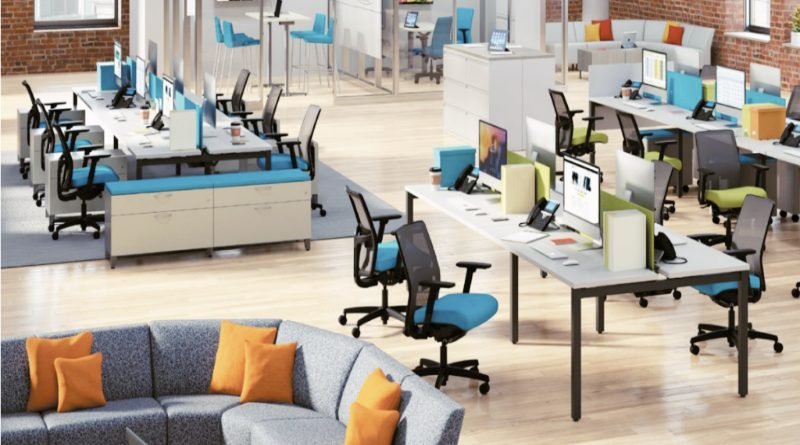The Latest Trends in Office Design and Layout
The workplace is changing rapidly. Companies are adopting new designs and layouts for their offices that promote collaboration, flexibility, and employee well-being. The following are some of the top trends in office design and layout today.
Open Floor Plans
The traditional layout of private offices is being phased out in favor of open floor plans. Cubicles are being eliminated and replaced with desks in communal areas, creating more interaction between employees. However, open floor plans can create distractions, so companies are using commercial office design plans with private areas and quiet spaces to allow focus work. Additionally, premium acoustic screens from Panelscreens have become a popular solution in modern office designs, effectively mitigating noise distractions and enhancing privacy within open floor plans.
Flexible Use Spaces
Rather than assigned desks, many companies are shifting towards unassigned seating and providing a variety of spaces for different work modes. These include open bench seating for collaboration, huddle rooms for small meetings, quiet booths for focused work, and comfortable lounge areas for casual discussions. Employees can choose the workspace that suits their tasks and preferences.
Work Cafe Design
To promote spontaneous connections between employees, office layouts increasingly feature cafe-like common spaces, similar to Starbucks. With informal seating, kitchenettes, and coffee bars, these spaces allow employees to network, socialize, or take a quick break in a relaxed environment.
Standing and Treadmill Desks
To encourage movement and improve posture and health, many companies are providing standing desks that allow workers to alternate between sitting and standing. Treadmill desks take this further by enabling walking while working. These height-adjustable desks with low-speed treadmills promote better blood circulation and combat the sedentary risks of office work.
Collaborative Zones
Rather than segregating departments into silos, office designs are mixed-use with project rooms, huddle areas, and open zones that encourage cross-functional collaboration. Brainstorming is facilitated through whiteboard walls, tackable surfaces, and informal seating arrangements that stimulate creativity and teamwork.
Biophilic Design
To connect workers with nature, offices are infusing more daylight, plants, natural materials, and views of the outdoors. Research shows biophilic elements enhance mood, reduce stress, and improve wellbeing and productivity. Wood and stone accents, living walls, green roofs, and floor-to-ceiling windows are examples.
Ergonomic Furnishings
With workers spending long hours at desks, offices are investing in ergonomic furniture designed to provide proper spinal support and comfort. Examples include adjustable chairs with lumbar support, monitor arms that reduce neck strain, and sit-stand desks that promote movement and variation in posture.
Multi-Purpose Spaces
Offices are moving away from single-use spaces to venues that serve multiple functions. For instance, large meeting rooms can double as event spaces, while building gyms can be used for employee gatherings and presentations. This allows companies to support diverse needs from one space.
Amenity-Rich Environments
Today’s offices aim to provide an amenity-rich environment catered to employee comfort, productivity, and convenience. Examples include wellness rooms, nursing spaces for new mothers, snack bars, on-site cafes, lounges, outdoor terraces, gyms, and recreational areas to provide a campus-like feel.
Tech-Enhanced Spaces
Digital tools are transforming office environments, with meeting rooms equipped with smart boards for screen sharing, huddle rooms fitted with video conferencing systems, and desks with power and USB charging ports. Motion sensors and advanced HVAC systems provide lighting and temperature controls for efficiency and comfort.
While open, flexible, and technology-enabled spaces are becoming prominent, office design continues to evolve. Today, the emphasis is on creating work environments tailored to foster productivity, collaboration, innovation, and employee satisfaction. Companies benefit when this is the case.
Also visit Digital Global Times for more quality informative content.

